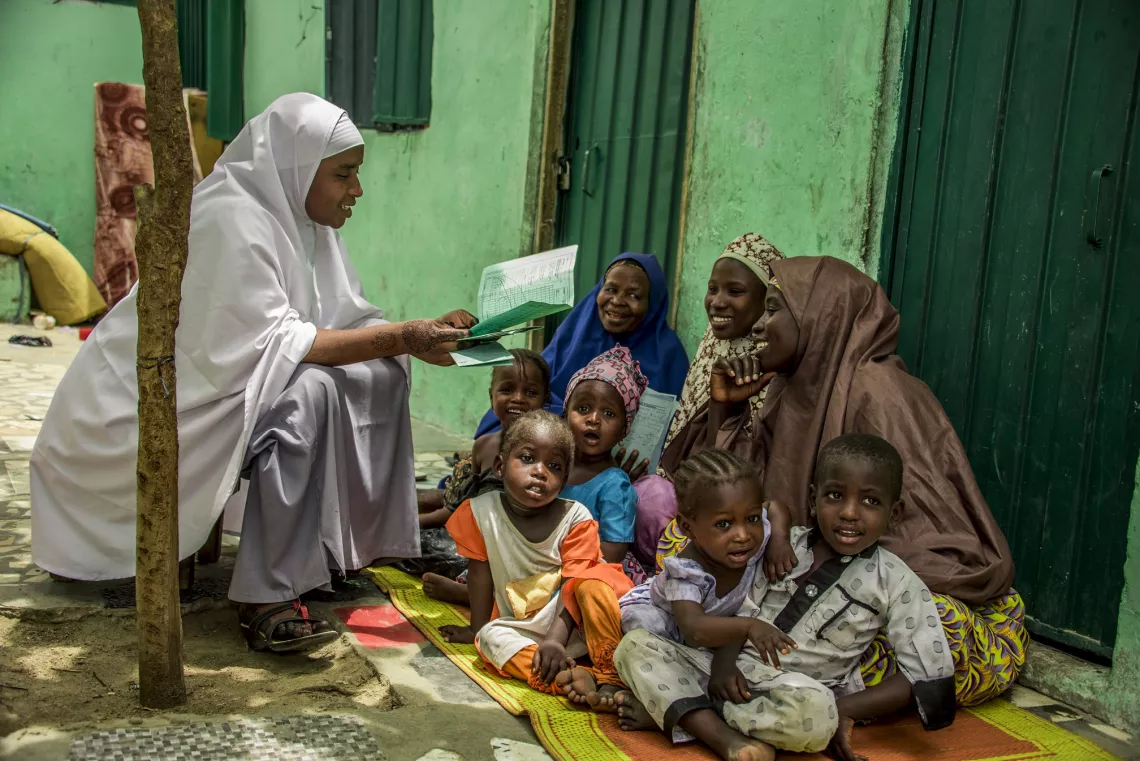Female health workers boosting immunization coverage in Kano
An all-female team of health workers are working hard to change the low immunization rate in their community.

8 May 2018 - “All the health workers here are hardworking. They are well-trained to do their job, and the community trusts them,” says 47-year-old Ladidi Suleiman, head of the Hotoro North Health Centre in Kano State, Nigeria.
Ladidi Suleiman leads an all-female team of ten health workers working hard to change the low immunization rate in their community. The team has recorded one of the highest improvements in vaccination rates of children in Kano State.
The health workers provide routine immunization services, vaccinating pregnant women, mothers and children against diphtheria, whooping cough, tetanus and other vaccine-preventable diseases. The vaccines protect mothers and children by helping them to safely develop immunity to diseases.
The health workers also ensure that a proper tracking mechanism is in place, with a register and health cards to monitor the immunization schedules of mothers and children, making sure they do not miss any vaccine.
“Because I know immunization is important for every child, I do house-to-house visits, telling mothers about how diseases spread and how they can be prevented. I tell them that prevention is better than cure,” says Fatima Zubairu, a mother of three girls and health worker at the Centre.

In Nigeria, routine immunization coverage is low, with the country still a long way from reaching the 90 percent target. Places like Kano State in northern Nigeria have particularly low rates, with only about 10 percent of children fully immunized, despite the fact that clinics are well-stocked with vaccines. .
It is not always easy to convince parents to allow their children get vaccinated due to traditional beliefs and fears around safety. This means the health workers must go out of their way to change negative perceptions and increase uptake of vaccines.
“I speak to community leaders to encourage men to take their wives and children to the clinic for vaccination. When the women come to the clinic for ante-natal or post-natal care, I also give them health talks and a constant reminder that vaccines work, and are safe for their children.”

Many of the women are now more accepting of the vaccines and even if they choose to give birth at home, bring their newborns to the clinic for vaccination.
Some days, the health workers vaccinate more than 80 babies in one day at the clinic. This is huge progress from last year, when they were vaccinating only about 24 babies from their community in one day. It is easy to meet with the increasing demand for routine immunization services - the health centre never runs out of vaccines, due to support from the Kano State Government and UNICEF.
“All my children are fully immunized and they are healthy. I tell mothers that when you give children full immunization, you have given them more than anything,” says Fatima.




